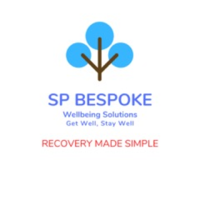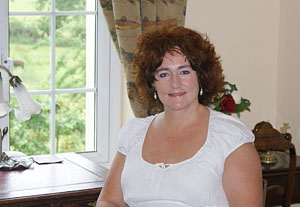About Us
At the moment there are two partners. Our Counsellor and Hypnotherapist is
Sally Crittall
I completed a diploma in Integrative Counselling in 2007, today I acknowledge it as being the platform onto which I have built further research, models and theories to provide clients with a truly individual treatment approach.
Neuroscience has greatly impacted the therapeutic arena over the last few decades. We are now better able to understand the mind and body connection, how we develop throughout our lifetime along with the neurobiological changes we can make to enhance our lives.
The models/theories I use are, CBT, PCT, EMDR(trauma), PTSD, Cptsd, NLP, Mindfulness, DBT, REBT, Memory reconsolidation, Parts Therapy, IFS, Polyvagal theory.
One specific area of great interest to me is
CPTSD - COMPLEX DEVELOPMENTAL TRAUMA
Complex trauma differs from PTSD which is defined as an anxiety disorder that develops following frightening, stressful or distressing life events. Characterised by intense fear, helplessness, and stress, PTSD affects the normal life and functioning of the client. Complex developmental trauma, on the other hand, is a psychological disorder that can develop in response to prolonged, repeated experience of inter-personal trauma in a context in which the individual has little or no chance of escape. Developmental trauma can be seen within family systems where the child endures chronic sexual, psychological, narcissistic abuse and physical abuse or neglect. The symptoms of complex trauma include prolonged feelings of terror, worthlessness, helplessness, and deformation of one's identity and sense of Self. Hence I often see adults struggling to form healthy intimate relationships - often I will hear clients say "I don't know who I am; when my partner tries to get close to me I freeze and will often sabotage the relationship with intense anger and rage, but I don't know why I am so angry, I feel I can't trust anyone, I can't let people in as they will hurt me all over again"
This example, and it is an example, asks "How safe or unsafe are people? How safe or unsafe is the world?" The big question is "How much can I depend on the people who should love me to take care of me?"
So the Self finds a way to survive in family systems early on, but that only causes it to bring unhealthy psychological symptoms into adolescence and adulthood.
My second area of great interest is
ALCOHOL
Always available, the constant friend, ever ready to take away the stresses and demands of life. A great helper in a time of need?....or not!
For those of us who have lived alongside alcohol and seen what addiction can do to the soul, we recognise this evil and corrosive thread that weaves itself through the fabric of our being.
Who's addicted? Well, you need two elements together to be called alcoholic.
1) The phenomenon of craving - craving a drink, telling lies to get one, agitated, restless, bad tempered.
2) The psychological preoccupation with alcohol - planning when you can have your next drink, where? with whom? or in secret? Can you go to the same off-license as yesterday, or do you need a different one? In all of this I would like to stress that it is not WHAT you drink that causes such problems, rather it has EVERYTHING to do with the effect of alcohol on the body. So switching drinks (cider for wine or vodka for lager) in the hope of doing something positive is POINTLESS.
Thankfully neuroscience can now prove that alcoholism is an ILLNESS and NOT A CHOICE (see "Pleasure Unwoven" by Dr Kevin McCauley on YouTube). What we see as 'badness' in someone's behaviour is a symptom of something far greater.
For the chronic drinker, getting off the stuff is hazardous, and there is little help from the NHS. Even if you found a sympathetic GP willing to prescribe for your withdrawal, the chances are that they would need to notify DVLA and you could lose your driving license; going 'cold turkey' can be dangerous; not all of us can afford to take 6 weeks off work to go to rehab . . . and everybody would know about your drinking: what then are you going to say to your boss or chairman? Like it or not the disease of addiction is not readily acceptable to the majority of the human race.
But there is hope - another option where you could be detoxed at home within 5 days! The first 72 hours of withdrawal are the most distressing and frightening, but with professional help they are manageable. For those worried about taking time off work, you can have 3 days without a sick note, so if you include a weekend then you have your 5 days.
I have been fortunate to have witnessed first hand such a service which is completely confidential, where people really care, come daily to your home , spend the day with you, supporting you. At the end of 5 days the support continues, never at any point will you feel alone, uncared for. This service is provided by SP Bespoke of Leicester (they operate nationwide) . . . . there is another way.

